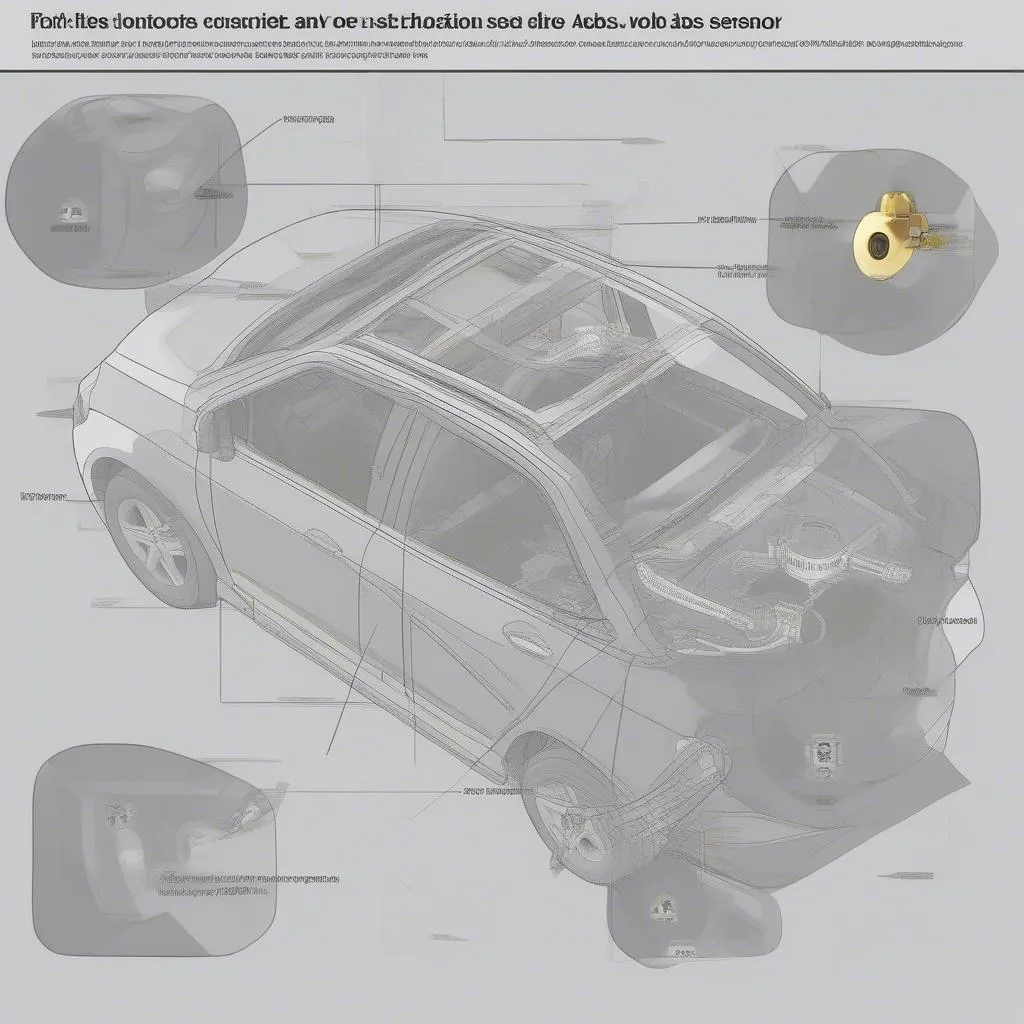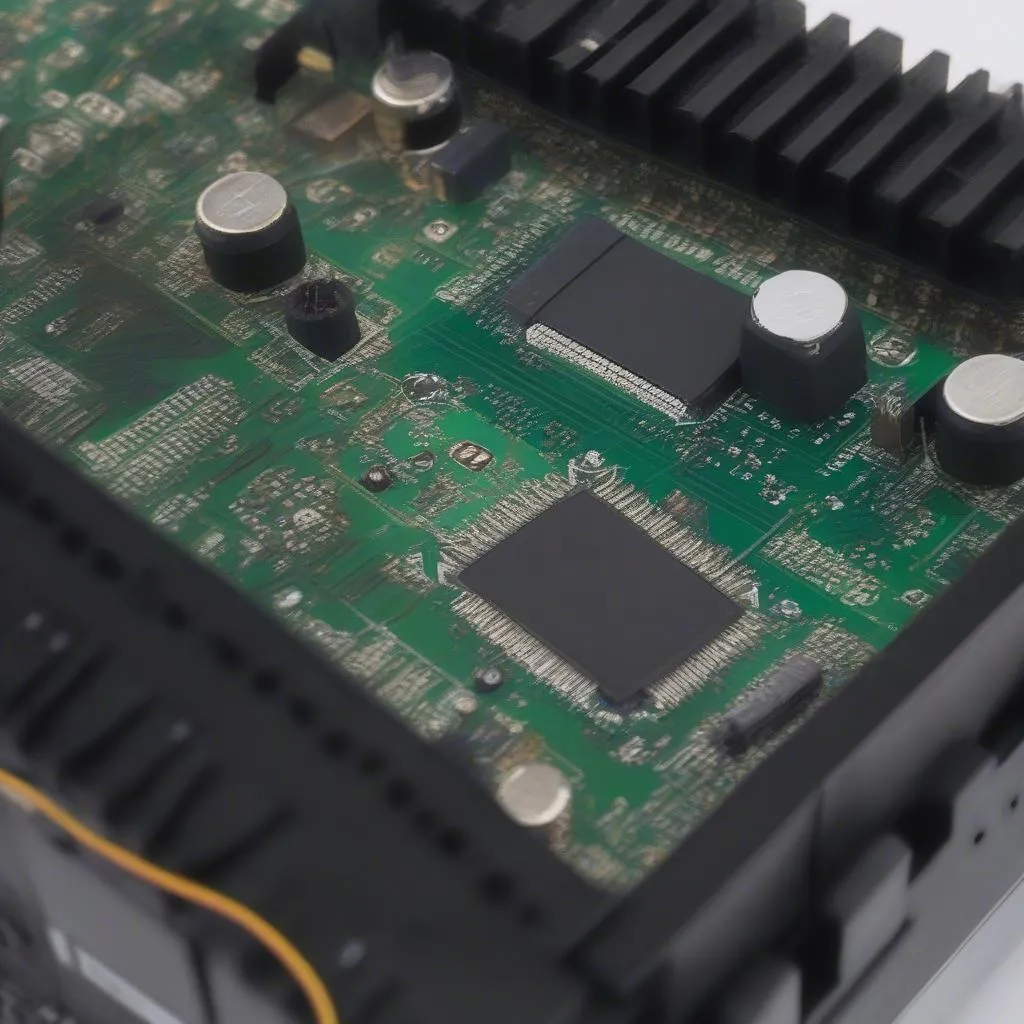Have you ever been driving down the road, feeling confident in your vehicle’s safety, only to be greeted by a flashing ABS light on your dashboard? This unexpected warning can be a source of anxiety, leaving you wondering if your car is still safe to drive. The ABS system is crucial for maintaining control during sudden braking, so any issues with it should be addressed promptly. In this article, we’ll delve into the world of ABS systems and explore why your ABS might not be working, how to identify the issue, and what you can do about it.
What is the ABS System, and Why Is It Important?
The Anti-lock Braking System (ABS) is a safety feature designed to prevent your car’s wheels from locking up during hard braking. When your wheels lock, you lose steering control and are more likely to skid. ABS works by rapidly modulating brake pressure, preventing the wheels from completely locking and allowing you to maintain steering control while braking. Think about it like this: Imagine trying to stop a bike abruptly on a wet surface. Without ABS, you’d likely lose control and skid. ABS helps you stay in control by preventing your wheels from locking up and allowing you to maintain your intended direction.
Common Reasons Why Your ABS Might Not Be Working
Now that we understand the importance of ABS, let’s dive into the potential causes of a malfunctioning ABS system. The most common reasons for a non-functional ABS include:
1. Defective ABS Sensors
ABS sensors are located near each wheel, constantly monitoring wheel speed. If one or more of these sensors become damaged, the system won’t be able to accurately determine wheel speed, leading to the ABS light illuminating. A damaged sensor can be caused by various factors, such as:
- Physical damage: This can happen from road debris, potholes, or even a simple collision.
- Corrosion: In environments with high humidity or salt, sensors can corrode and fail to function.
- Wiring issues: Damaged or loose wiring can also disrupt the signal from the sensor.
Example: Imagine driving on a rough road with potholes. A rock could kick up and damage one of the ABS sensors on your Honda Accord, resulting in the ABS light turning on.
2. Faulty ABS Control Module (ABS ECU)
The ABS control module (ECU) is the brain of the ABS system. It receives data from the sensors, analyzes it, and sends commands to the brakes. If this module malfunctions, the ABS system won’t operate as intended.
Example: Imagine you’re driving your Toyota Camry through a heavy downpour in the Midwest. The excessive moisture could cause the ABS ECU to malfunction, leading to a non-functional ABS system.
3. Low Brake Fluid Level
Brake fluid plays a crucial role in the ABS system’s operation. If the brake fluid level is low, it can interfere with the system’s hydraulic pressure, preventing it from functioning correctly.
Example: Imagine driving your Volkswagen Golf in a mountainous region. The high altitude can cause brake fluid to evaporate faster, leading to a low brake fluid level and a malfunctioning ABS system.
4. Problems with the Hydraulic System
The ABS system relies on a hydraulic system to regulate brake pressure. If there are leaks or other issues with this system, it can affect the ABS’s performance.
Example: Imagine driving your Ford Mustang through a heavy snowstorm in New York City. The harsh weather conditions could cause a leak in the hydraulic system, interfering with the ABS system’s operation.
How to Identify and Fix the Issue
Diagnosing the cause of an ABS malfunction can be tricky. While you might be tempted to try and fix it yourself, it’s generally best to seek professional help from a qualified mechanic. Here’s why:
- Specialized Equipment: Mechanics have access to specialized tools and diagnostic equipment that allow them to accurately pinpoint the source of the issue.
- Expertise: They have extensive knowledge and experience in dealing with complex systems like ABS, enabling them to effectively diagnose and repair problems.
- Safety: Attempting to repair the ABS system yourself can be risky, potentially leading to further damage or even unsafe driving conditions.
What to Do If Your ABS Light Is On
- Don’t panic: While the ABS light can be alarming, it doesn’t necessarily mean your car is unsafe to drive. The brakes will still function, but you’ll lose the added safety feature of ABS.
- Drive cautiously: Avoid hard braking and sudden maneuvers as much as possible. If you need to brake quickly, be prepared for a longer stopping distance.
- Get it checked ASAP: Schedule an appointment with a qualified mechanic as soon as possible to get the ABS system diagnosed and repaired. This will ensure that your car remains safe and reliable on the road.
Common FAQs about ABS Not Working
Can I Drive With a Non-Functional ABS System?
Yes, you can drive with a non-functional ABS system. However, remember that you will not have the added benefit of ABS during braking, and your stopping distance will be longer. It’s important to drive cautiously and get the system repaired as soon as possible.
Is it Expensive to Repair an ABS Problem?
The cost of repairing an ABS problem can vary depending on the issue and the make and model of your car. A simple sensor replacement might be relatively inexpensive, while a damaged ABS ECU could be significantly more costly.
How Do I Know if My ABS Light Is On?
Most modern cars have a dashboard light that illuminates when there is a problem with the ABS system. The symbol typically looks like a car with a wavy line under it, or it may be labeled “ABS.”
What Happens if I Ignore the ABS Light?
If you ignore the ABS light, you risk driving with a compromised safety system, which could lead to an accident in the event of an emergency braking situation.
Conclusion
A malfunctioning ABS system is a serious concern, but it’s not always cause for alarm. By understanding the potential causes, the importance of professional diagnosis, and the need for timely repairs, you can ensure your car remains safe and reliable on the road. If you’re experiencing any issues with your ABS system, don’t hesitate to contact a qualified mechanic for assistance. Remember, your safety is paramount.
 ABS sensor diagram
ABS sensor diagram
 ABS control module
ABS control module
Do you have any more questions about ABS or other automotive systems? Leave a comment below or reach out to us at Whatsapp: +84767531508. Our team of expert mechanics is available 24/7 to assist you.
To learn more about car diagnostics and repair, check out these related articles: